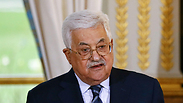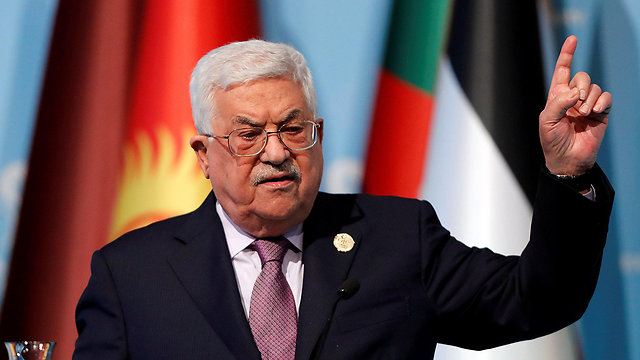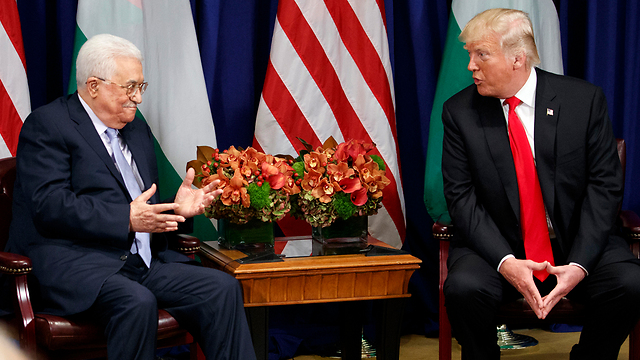
Abbas left with an empty diplomatic toolbox
Analysis: Despite their declarations, the Palestinians understand there will be no peace negotiations without American mediation; another UN discussion and another General Assembly resolution will only provide them with a worthless symbolic victory, which won’t bring them any closer to a state.
If the Palestinians had a shred of hope that peace negotiations would be renewed in the Netanyahu era, it faded away and disappeared after US President Donald Trump’s Jerusalem announcement.
“We will no longer accept the United States as a mediator in the peace process and we will not accept any peace plan from the American side,” Palestinian President Mahmoud Abbas declared in his moment of deep dispair.

We must admit that there have been no real negotiations with the Palestinians since the establishment of the Netanyahu government in 2009, and they won’t be renewed as long as the current government remains in power. In general, the term “negotiations” has been erased from Israel’s political lexicon, not to mention the word “peace.” As Prime Minister Benjamin Netanyahu says, “There was nothing, there is nothing, there will be nothing.”
Throughout this entire period, Ramallah didn’t stop playing by the rules. After Trump’s election, Abbas wanted to believe that the new president supports the two-state vision. He waited to hear about the American peace plan and believed that it would be possible to return “to the table.” Until the Jerusalem announcement—which Abbas considered a low blow—he had still hoped that Trump would pull some kind of diplomatic rabbit out of his hat and salvage what could still be salvaged.
Now, Abbas is left with an empty diplomatic toolbox. While he declares that he wants negotiations brokered by a different mediator—the Europeans or the Russians—and wants to create more international pressure on Israel, he knows that another United Nations discussion and another General Assembly resolution will only provide him with a worthless symbolic victory, which definitely won’t bring the Palestinians closer to a state. Europe has its own problems and is incapable of imposing terms for peace negotiations and setting them in motion, and the Palestinians definitely can’t rely on the Arab states, especially now.
Despite the declarations, the Palestinians understand there will be no negotiations without American mediation. So in an attempt to reenact the first intifada, which forced Israel to come to the negotiating table, they are threatening to increase the violent popular struggle against Israel—a sort of war of attrition. The Palestinians will try to execute this battle until the end of Trump’s term or until a change of government in Israel.

Hamas is in a catch-22 situation too. Its leaders are issuing aggressive statements, while exercising restraint and fighting the rebel organizations that are trying to drag Gaza into a war by occasionally firing rockets into Israel.
Hamas leaders Yahya Sinwar and Ismail Haniyeh realize that a military adventure will threaten their organization’s rule. Furthermore, Hamas is frustrated by the fact that despite the talks of unity, Abbas “couldn’t care less” about Gaza. Now that the efforts to resume negotiations have been halted, Abbas has no motivation to reconcile with Hamas. The price is being paid, as always, by Gaza’s residents, whose situation has only worsened in the past three months.
The reality in the territories, and in east Jerusalem, in the past two decades has completely changed. Now, with Trump’s encouragement, it is becoming permanent—450,000 settlers and civil and economic infrastrctures. The conditions set by the Netanyahu government, which has declared its willingness to enter negotiations without any preconditions, have increased too. In addition to saying “no” to negotiations on Jerusalem, and in addition to demanding that the Palestinians recognize Israel as the Jewish people’s nation state, it is setting a new condition: No negotiations without a Palestinian recognition of Jerusalem as the Jewish people’s capital.
On the other side, we are seeing the development of a new Palestinian generation, which is more religious and struggling with collective feelings of anger, frustration, hatred and revenge, as well as a reality of a state-like entity on only 18 percent of the West Bank territories. In a reality in which the Palestinians see no diplomatic hope in the foreseeable future, their ultimate response is sticking to the ethos of the conflict, which justifies—according to their perception—a continuation of the battle.
The diplomatic stalemate, the ongoing settlement construction and the de facto annexation of many areas in the West Bank leave no chance for the two-state vision. The move towards a forced binational state—which contradicts the Zionist aspiration for a Jewish and democratic state—is materializing. This reality is charged with destructive forces, both on their side and on ours.
Dr. Ronni Shaked is a research fellow at the Harry S. Truman Research Institute for the Advancement of Peace at Hebrew University.










